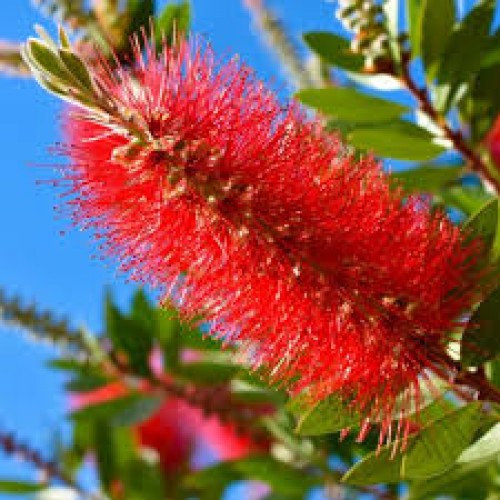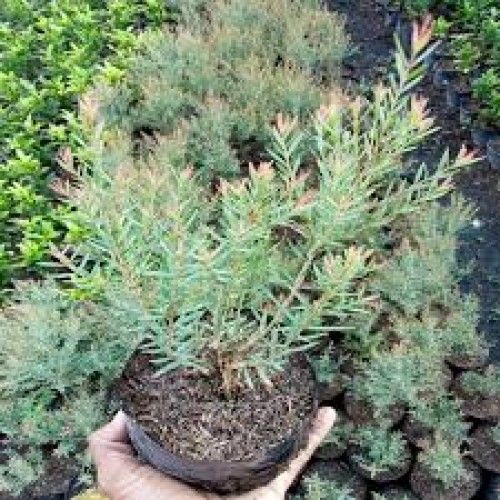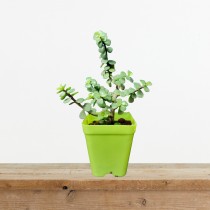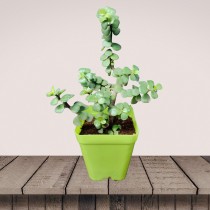60%
off
off
-
Sold
-

-

out
Bottlebrush Plant (Callistemon spp.)
Botanical Features & Nature
- Scientific Name: Callistemon spp. (also known as Melaleuca spp.)
- Common Names: Bottlebrush, Crimson Bottlebrush, Weeping Bottlebrush
- Family: Myrtaceae
- Origin: Native to Australia; widely cultivated in tropical and subtropical regions
- Height: Varies by species; typically ranges from 1 to 10 meters
- Leaves: Narrow, lance-shaped, aromatic when crushed
- Flowers: Bright red, cylindrical spikes resembling a bottle brush; bloom primarily in spring and summer
- Fruit: Woody capsules that persist on the plant
Care & Cultivation
- Sunlight: Prefers full sun; requires at least 6 hours of direct sunlight daily for optimal flowering
- Soil: Thrives in well-drained soils; tolerant of a range of soil types, including sandy and slightly alkaline soils
- Watering: Drought-tolerant once established; regular watering during prolonged dry periods enhances growth
- Fertilization: Apply a balanced fertilizer in spring; avoid high-nitrogen fertilizers to prevent excessive foliage growth at the expense of flowers
- Pruning: Prune after flowering to maintain shape and encourage bushier growth
- Propagation: Propagated through seeds or semi-hardwood cuttings
Uses & Benefits
Medicinal Applications
- Traditionally used in herbal medicine for its antibacterial and antifungal properties
- Employed in treating ailments such as diarrhea, skin infections, and respiratory issues
- Contains compounds with antioxidant and anti-inflammatory activities
Environmental Significance
- Attracts pollinators like bees, butterflies, and hummingbirds, enhancing biodiversity
- Provides shelter and nesting sites for various bird species
- Helps in soil stabilization and erosion control due to its root system
Ornamental & Cultural Importance
- Popular ornamental plant in gardens and landscapes for its striking flowers and evergreen foliage
- Used as hedges, screens, or specimen plants in landscaping
- Symbolizes resilience and adaptability in various cultures
Advantages of Planting Bottlebrush
- Low Maintenance: Requires minimal care once established
- Drought Tolerance: Suitable for xeriscaping and water-wise gardens
- Versatility: Adaptable to various soil types and environmental conditions
- Wildlife Support: Enhances local ecosystems by supporting pollinators and birds
- Aesthetic Appeal: Adds vibrant color and texture to landscapes
Cultural Significance
- In some cultures, the Bottlebrush is associated with cleansing and purification due to its brush-like flowers
- Used in traditional ceremonies and rituals symbolizing renewal and resilience

